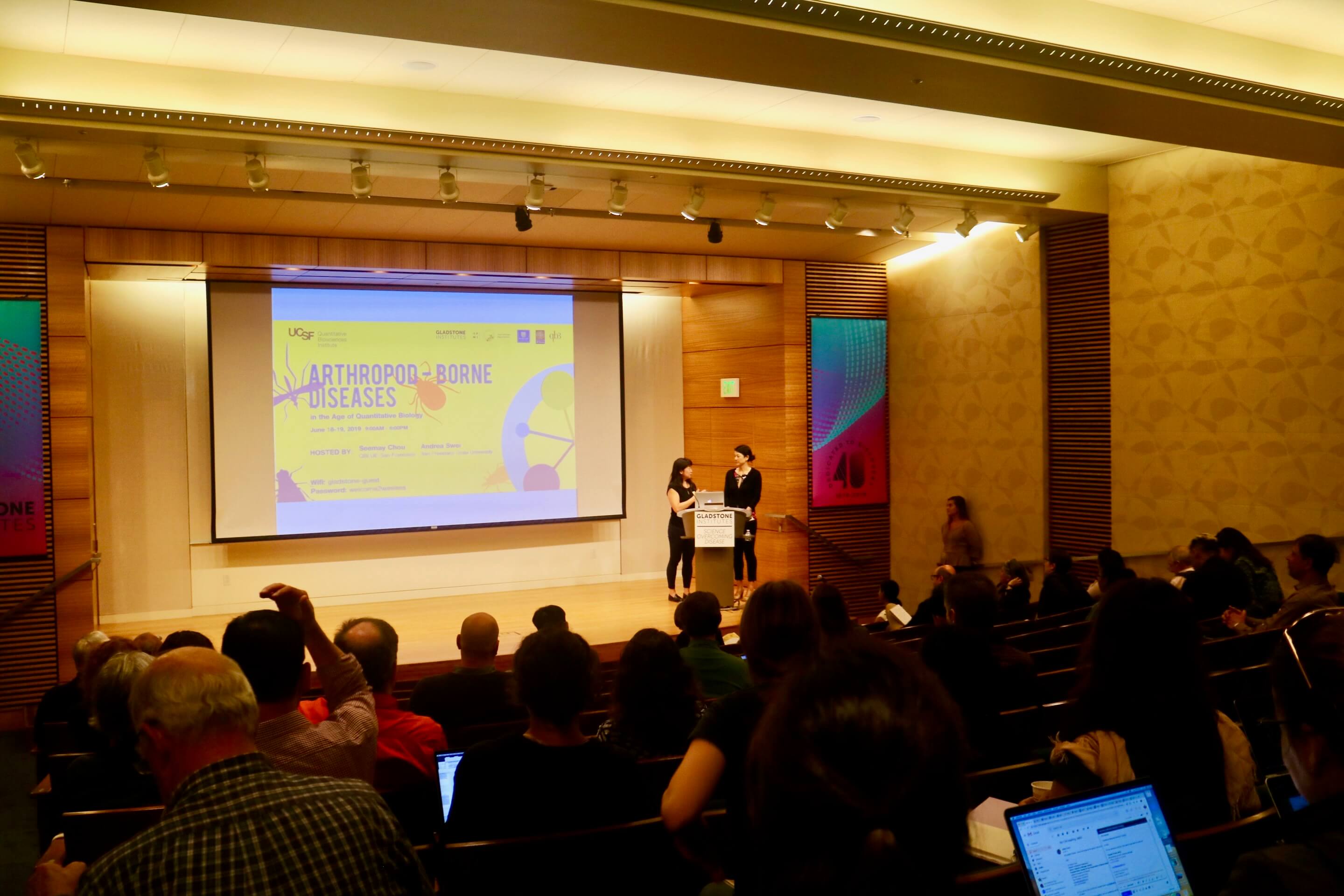
Vector-borne diseases have increased and projections around the world point to their continuous geographic spread. Although the United States has witnessed the emergence of tick-vectored diseases, like Lyme, the topic is often overlooked and underemphasized on the west coast.
To refresh the narrative and focus on the challenges and opportunities in vector-borne disease research, the Quantitative Biosciences Institute (QBI) hosted its fifth symposium on June 18 and 19 at the Gladstone Institutes, titled “Arthropod-borne Diseases in the Age of Quantitative Biology.”
With more quantitative research needed to understand these diseases more deeply, this gathering became a forefront of working towards the development of novel therapies and disease control.
Free and open to the public, the event invited more than 250 attendees to engage in stimulating conversations, led by 20 experts, on a wide range of vector-related topics, spanning from Lyme disease to Zika, Dengue and West Nile virus. It also featured a lunch panel presented by the Bay Area Lyme Foundation, focusing on “what’s next” for Lyme disease.
The symposium was co-organized by Seemay Chou, assistant professor in biochemistry and biophysics at UC San Fracisco, and Andrea Swei, assistant professor in the Department of Biology at San Francisco State University.
“This quantitative biology approach really highlighted just how thrilling and exciting a time we are in right now with all of these amazing genomic tools, quantitative analyses and big data,” said Swei when closing the event. “It’s really exciting to come together and translate these methods and tools. I hope that we can harness the power of collaboration in working in a very interdicsciplinary fashion as well.”
The speakers included UCSF researchers Raul Andino, Charles Chiu, Seemay Chou, Jane E. Koehler. Experts from other national organizations included Geoff Attardo, Gregory Lanzaro and Priya Shah (UC Davis), Shannon Bennett (California Academy of Sciences), Amy Kistler (Chan Zuckerberg Biohub), Vicki Kramer (California Department of Public Health), John Marshall (UC Berkeley), Joao Pedra (University of Maryland), Manu Prakash, Michal Caspi Tal, and Ellen Yeh (Stanford University), Jason Rasgon (Pennsylvania State University), Patricia Rosa (NIH/NIAID), Andrea Swei and Ravinder Sehgal (San Francisco State University), and Ana Sesma (Ichan School of Medicine at Mount Sinai).